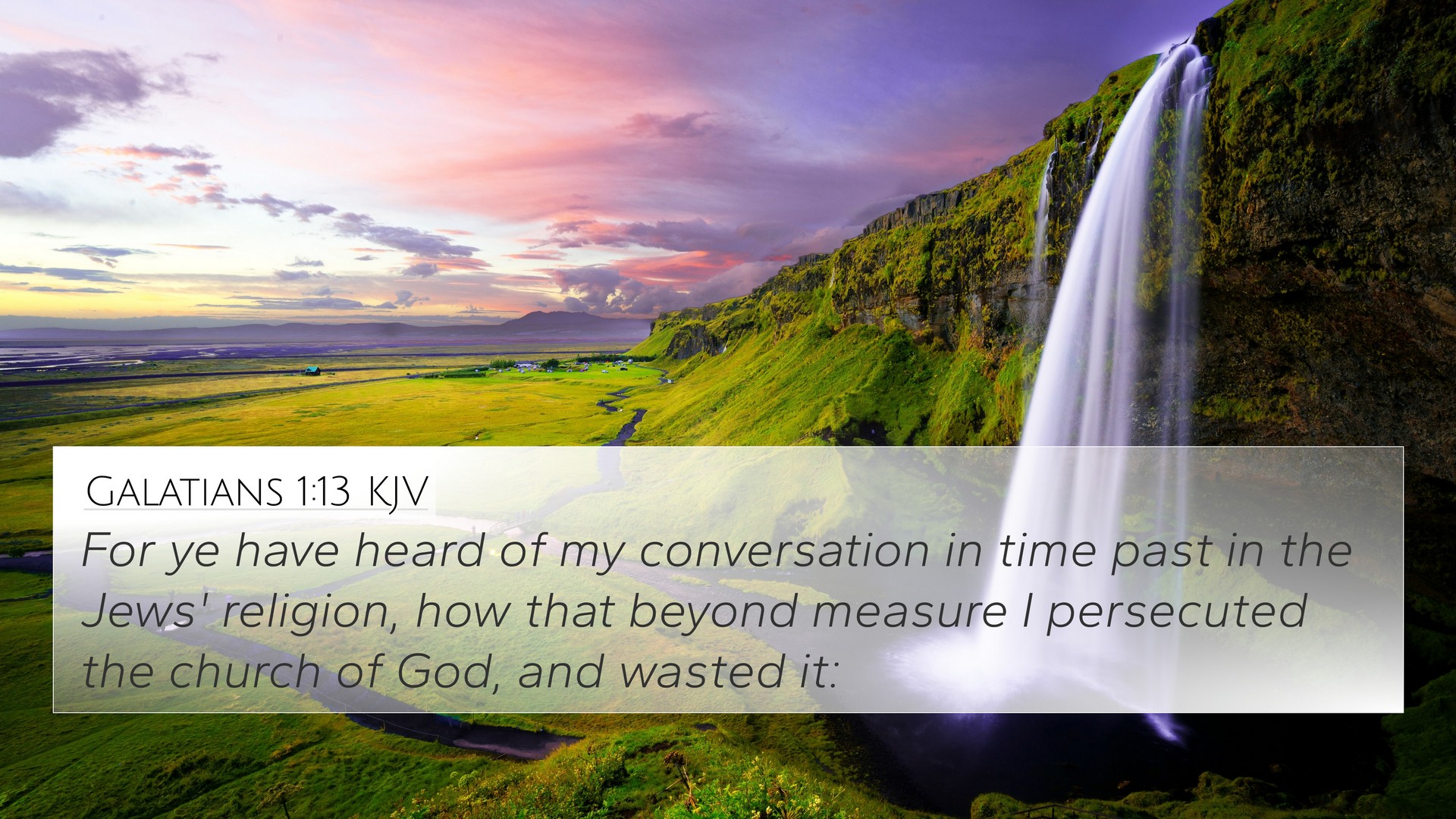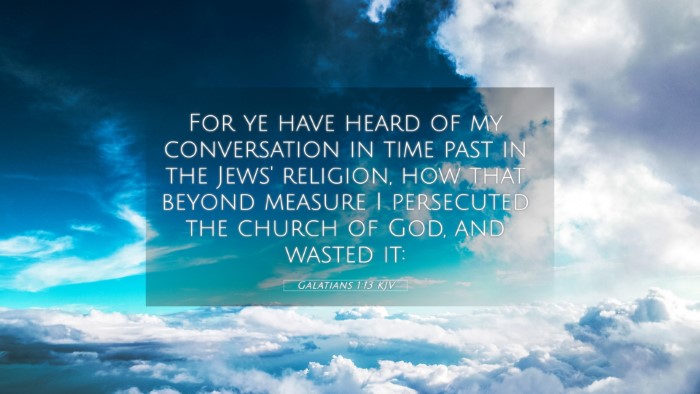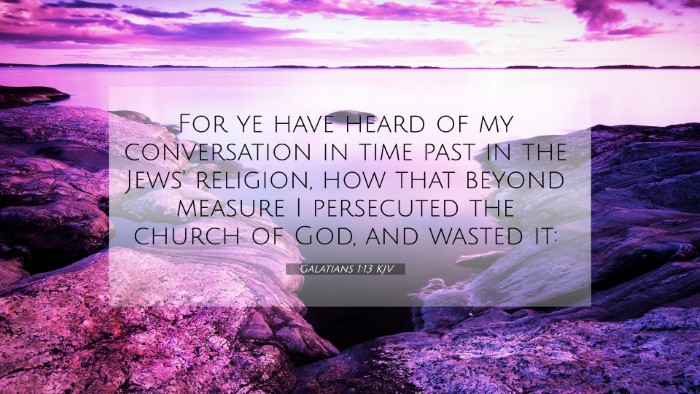This section features a detailed cross-reference designed to enrich your understanding of the Scriptures.
Below, you will find carefully selected verses that echo the themes and teachings related to Galatians 1:13 KJV. Click on any image to explore detailed analyses of related Bible verses and uncover deeper theological insights.
 Acts 8:3 (KJV) »
Acts 8:3 (KJV) »
As for Saul, he made havock of the church, entering into every house, and haling men and women committed them to prison.
 Acts 9:26 (KJV) »
Acts 9:26 (KJV) »
And when Saul was come to Jerusalem, he assayed to join himself to the disciples: but they were all afraid of him, and believed not that he was a disciple.
 1 Corinthians 15:9 (KJV) »
1 Corinthians 15:9 (KJV) »
For I am the least of the apostles, that am not meet to be called an apostle, because I persecuted the church of God.
 Acts 22:3 (KJV) »
Acts 22:3 (KJV) »
I am verily a man which am a Jew, born in Tarsus, a city in Cilicia, yet brought up in this city at the feet of Gamaliel, and taught according to the perfect manner of the law of the fathers, and was zealous toward God, as ye all are this day.
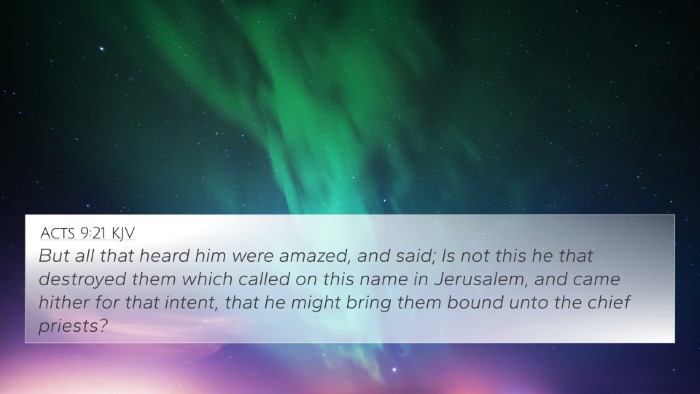 Acts 9:21 (KJV) »
Acts 9:21 (KJV) »
But all that heard him were amazed, and said; Is not this he that destroyed them which called on this name in Jerusalem, and came hither for that intent, that he might bring them bound unto the chief priests?
 Acts 26:4 (KJV) »
Acts 26:4 (KJV) »
My manner of life from my youth, which was at the first among mine own nation at Jerusalem, know all the Jews;
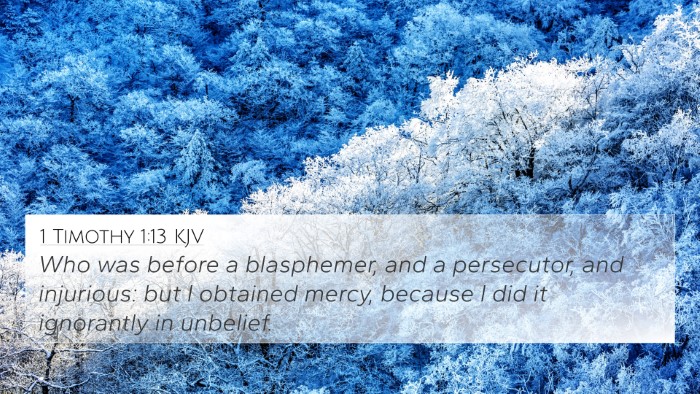 1 Timothy 1:13 (KJV) »
1 Timothy 1:13 (KJV) »
Who was before a blasphemer, and a persecutor, and injurious: but I obtained mercy, because I did it ignorantly in unbelief.
 Acts 9:13 (KJV) »
Acts 9:13 (KJV) »
Then Ananias answered, Lord, I have heard by many of this man, how much evil he hath done to thy saints at Jerusalem:
 Acts 9:1 (KJV) »
Acts 9:1 (KJV) »
And Saul, yet breathing out threatenings and slaughter against the disciples of the Lord, went unto the high priest,
 Acts 26:9 (KJV) »
Acts 26:9 (KJV) »
I verily thought with myself, that I ought to do many things contrary to the name of Jesus of Nazareth.
 Acts 8:1 (KJV) »
Acts 8:1 (KJV) »
And Saul was consenting unto his death. And at that time there was a great persecution against the church which was at Jerusalem; and they were all scattered abroad throughout the regions of Judaea and Samaria, except the apostles.
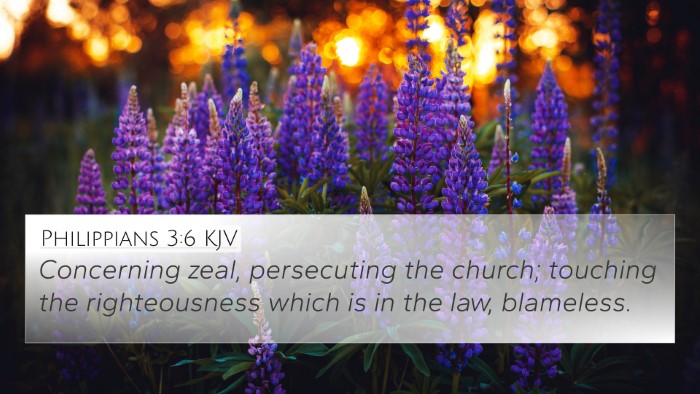 Philippians 3:6 (KJV) »
Philippians 3:6 (KJV) »
Concerning zeal, persecuting the church; touching the righteousness which is in the law, blameless.
